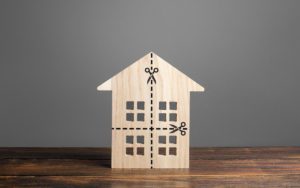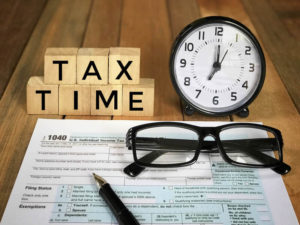Content Reviewed by: Dave Gormley •
May.20.2020 Vertified Content
May 20, 2020 | Read Time: 4 minutes
We get a LOT of calls from people who want to add their children or another family member to the deed to their house. They have the best intentions – but they may be making a giant financial mistake!
You need to seriously consider the tax and financial implications of adding someone to the deed to your house.
The purpose of this post is to make people aware of the possible consequences, and to make sure they have thought this through before taking action.
Here is the usual situation – you own a house or other piece of real estate that will be inherited by your children. You desire to pass that property onto your children without fear of taxes or probate. So, you call a lawyer to deed the property over from yourself as sole owner, to yourself and your children as joint owners. That way, when you pass away, your children are the owners of the house and you didn’t have to go through probate.
From a legal point of view, you are 100% correct. If multiple people jointly own a piece of real property as joint tenants with right of survivorship, and one person dies, that deceased owner’s interests in the real property automatically transfers to the joint owners. There is no need for a deed, probate, or other formal legal proceeding.
BUT (and this is a very big but!) you are forgetting about the tax consequences of this maneuver. You are forgetting about capital gains taxes. You should never deed over a piece of real property to your children without considering the tax consequences.
Article Contents
Don’t Lose the Step Up in Basis
Under current federal tax law, someone who inherits property gets a “step up” in their tax basis for that property. The tax basis of the real property is “stepped up” to the fair market value on the date of the death of the person passing it on. The capital gains due on the sale of that asset will be based on the stepped up value – not the original purchase price.
This can be a HUGE financial benefit to the heirs who will be receiving the property. And it can be a HUGE financial burden if you throw this away by deeding property when you shouldn’t!
Don’t forget about capital gains. You pay capital gains tax on the increased value of any asset. The tax basis of that asset’s value is the amount you paid on the date you purchased it. If that was a long time ago, you could have a large capital gain in the property and a large tax bill if you sold it.
You don’t want to pass that on to your heirs, do you? The step up in basis under federal tax law means you don’t have to if the asset passes on after you die.
An Example
Consider this example: You purchased your house 20 years ago for $100,000. Now it is worth $300,000. If you sell the house, you will owe capital gains tax on the $200,000 in increased value – not the entire $300,000 value of the house.
Your “tax basis” is the amount you paid for the house – $100,000. That tax basis is used to calculate your gain, and therefore your capital gains tax.
If you die and pass the house to your kids in your will, they will get a step up in tax basis to the value of the house on the date of your death.
Let’s assume that value is $300,000. If they sell the house for $300,000 now, they won’t pay any capital gains tax. Their tax basis is the same as the sale price. There is no increased value. If they hold it until it is worth $350,000, they only pay tax on the $50,000 in increased value that occurred after you died.
But if you add them to your deed before you die, their tax basis will be $100,000 – the same as yours. That means if they sell the house now they will pay tax on $200,000 in capital gain that they would not have paid if they inherited the property when you died. If you add the kids to your deed now, you lose the step up in tax basis.
Conclusion
As you can see, this is a big issue and you really have to think through all the tax angles before you think about adding your children to your deed. Before you call a lawyer, you need to call an accountant or financial advisor. You need to sit down with that person and go over the reasons for this move, and the tax consequences.
If adding your children to your deed makes sense after this tax-related analysis, then we would be happy to do this for you.
But we want to make sure you have considered the possible consequences and know for sure that this is a good financial move for you.
Please contact us for a consultation today.
Like our blog? Subscribe to our email newsletter and stay informed!






